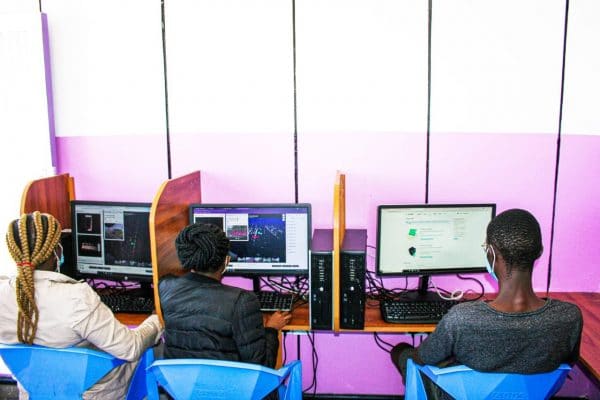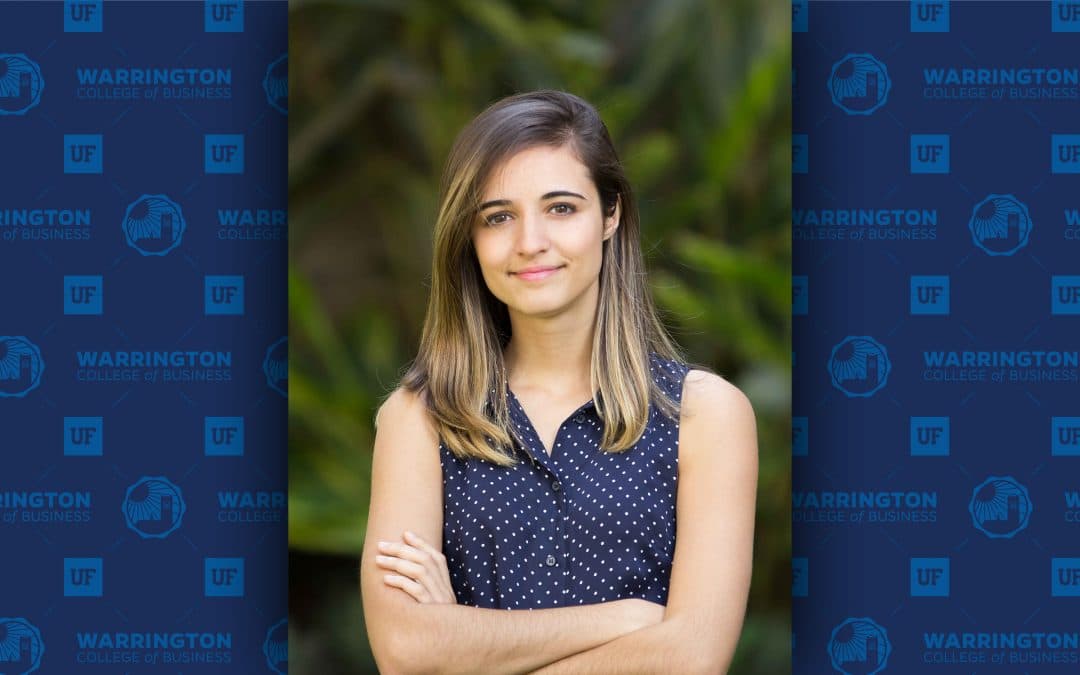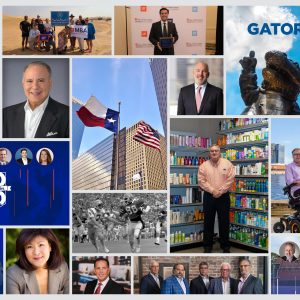Ditching Corporate Life for Entrepreneurship
How a trip to Africa convinced Vassia Daskalakis to leave corporate America for an AI startup in Kenya
Vassia Daskalakis had a short break between graduating from the Warrington College of Business and starting her full-time role at J.P. Morgan. What was meant to be a quick diversion before starting life in corporate America turned into a trip that would change her future.
Daskalakis (BSBA ’16) spent 25 days road tripping with friends from Zambia to South Africa with many diversions along the way – skydiving, sandboarding, bungee jumping off Victoria Falls, camping in deserts and deltas, and safaris in beautiful national parks.
“I realized that I love camping and adventure, and that these African countries were among the most beautiful places and friendliest cultures I’ve ever experienced,” Daskalakis said.
Today, Daskalakis serves as CEO of Africa AI Labs in Nairobi, but her path there wasn’t straightforward.

Hell’s Gate National Park, Kenya
When her African road trip was over, she flew to New York for day one of her new job at J.P. Morgan, working in a role that most college graduates would love to begin their careers. However, the wheels were already turning in the back of her mind. Was this role the right fit for her long term? Would she develop skills that were too specialized to apply to entrepreneurship?
She knew J.P. Morgan well after interning with the company during her sophomore and junior summers before returning for the full-time role. But after one year, Daskalakis realized her concern was coming to fruition. She was becoming too specialized in her skills and didn’t feel like she was having an impact on the company or the world.
She always had a passion for entrepreneurship and pursued that while working at J.P. Morgan by volunteering for Bankers Without Borders and starting an “Impactful Careers in Finance” podcast. But when she stepped away from J.P. Morgan, Daskalakis wanted to move to an emerging market where she could see an impact in what the company was doing.
And Africa had never left her mind.
Daskalakis moved to Kenya and took a six-month fellowship with I-DEV International, which raises capital and consults high growth East African startups and small and medium-sized enterprises.
Her fellowship with the company turned into a full-time role.
“At I-DEV, I got a 360 degree view of the Nairobi startup ecosystem, which had so much going on,” Daskalakis said. “I could interact with venture capitalists, PEs, development banks, and startups, and decide which path I wanted to take.”
After leaving for a startup called EIDU, an early childhood development app that gamified learning for pre-school students in the slums, Daskalakis worked as Growth Manager doing data analytics, working with developers to achieve product market fit, leading the sales and field teams, and developing bug reporting processes for the app.
Working in an early-stage startup allowed Daskalakis to see what it took to build a company from the ground up and see the importance of listening to the market. After a year and a half with EIDU, she left to work full-time on Africa AI Labs (AAL), which developed out of her volunteer work at a Kenyan orphanage. Originally a computer literacy and job placement program for high school graduates, the team tried to find a scalable solution for orphans that turned 18 and would get kicked out of the orphanage and return to the slums with no job skills, networks, or living support. The team soon discovered that these students thrived in data labeling jobs, which are defined as the human component of training AI algorithms, and they even outperformed their college-graduated peers at Kenyan data labeling companies.
Soon after, AAL started partnering with community-based organizations to convert their idle spaces into data labeling centers that digital workers could access for little-to-no cost. The for-profit entity was born after realizing the surprising abundance of this low-cost remote work infrastructure, paired with the overwhelming demand from international data labeling companies to enter Africa.

Community Cloud Lab in Kenya
“We use previously idle community spaces to enable remote data labeling workforces for AI in Africa as a means to break the cycle of poverty for underserved workers,” Daskalakis said. “We believe data labeling is the best entry point for these workers to enter the digital economy and achieve financial security through dignified, online work as opposed to dangerous, casual labor work. Our target group is unemployed workers who are the sole breadwinners of their families, from informal settlements or rural areas.”
In January 2021, the company employed 36 people. Today, only six months later, Africa AI Labs employs 550 full-time workers in Kenya and is aiming to be the go-to player for data labeling companies seeking African expansion. They’ve also raised $525,000 in equity and grants.
So what does the future hold for Africa AI Labs?
“Massive scale up,” Daskalakis said. “We found a unique business model and product market fit. We’re seeing more international companies who want a geographically diverse workforce asking ‘what about Africa?’ We will be the one they go to, and ultimately open up the data labeling market in Kenya.”
Daskalakis’ time at Warrington provided her with a strong foundation of skills to stand out in her career. Whether it was her time as a competitive UF policy debater or growing her skills through other extracurricular opportunities like CASE or the Entrepreneurship and Innovation Center Entrepreneurship Ambassadors, she was prepared to stand out as a professional.
“Those extracurricular opportunities were a huge part in preparing me to join new communities, live in new places around the world, make connections and connect the dots,” Daskalakis said. “They were hugely influential.”




